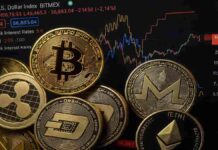# GLOBAL NEWS
In the rapidly evolving landscape of global finance, economic developments, and geopolitical tensions, recent events have underscored the interconnectedness of markets and the implications for investors and policymakers alike. This article provides a summary of key happenings across the United States, Europe, and Asia, reflecting the latest trends and challenges faced by these regions.
## US
The U.S. economy continues to show signs of strain as the labor market reveals cracks, with the latest figures indicating that only 22,000 jobs were added in August, significantly lower than the expected 75,000. This slowdown has raised concerns about the Federal Reserve’s monetary policy, with traders now speculating that a rate cut may be on the horizon. Some analysts suggest the Fed could reduce rates by half a percentage point in its upcoming meeting. Amidst this backdrop, worker confidence in securing new employment has hit a record low, further complicating the economic outlook.
In the corporate sphere, tech companies are making headlines with significant developments. Nebius Group’s stock surged by 60% following a multibillion-dollar AI infrastructure deal with Microsoft, showcasing the ongoing demand for AI capabilities. Meanwhile, the IPO market is witnessing renewed activity, with StubHub aiming to raise up to $9.2 billion, signaling a potential rebound in investor appetite.
On the geopolitical front, President Trump is navigating complex trade dynamics, particularly with China. The Supreme Court is set to rule on the legality of several tariffs, with potential refunds exceeding $1 trillion if deemed unlawful. This situation has led to uncertainty in the markets, as companies and investors assess the potential impact of these tariffs on trade and pricing strategies.
## EUROPE
In Europe, the automotive sector is facing a pivotal moment as traditional car manufacturers unveil a series of new models at the IAA Mobility conference. Legacy brands such as Volkswagen, BMW, and Renault are launching initiatives to counter the growing competition from Chinese electric vehicle manufacturers. This product blitz aims not only to retain market share but also to establish a stronger foothold in the rapidly evolving EV landscape.
Political turbulence is also a significant theme in Europe, particularly in France, where Prime Minister François Bayrou was ousted in a no-confidence vote, marking yet another chapter in the country’s ongoing political crisis. President Emmanuel Macron is now tasked with appointing a new prime minister, amid growing discontent over economic policies and governance.
Meanwhile, the European Central Bank (ECB) faces pressure as inflation rates rise, prompting discussions about potential interest rate adjustments. Despite marginal economic growth of 0.1% in the Eurozone during the second quarter, concerns about rising unemployment and inflation could complicate the ECB’s decision-making process in the coming months.
## ASIA
In Asia, significant developments are emerging from several key nations. Japan’s political landscape is shifting as Prime Minister Shigeru Ishiba announces his resignation following electoral setbacks. His departure comes on the heels of a recently finalized trade deal with the U.S., which has implications for Japan’s economic strategy amid rising inflation and immigration concerns.
In China, the government is taking steps to bolster its economy by introducing instant tax refunds for tourists, a move aimed at revitalizing inbound tourism. Additionally, the Chinese tech sector is witnessing substantial investment, with Alibaba leading a $100 million funding round for a humanoid robot startup, highlighting the country’s ambition in robotics and AI.
The geopolitical landscape is also fraught with tension, particularly concerning Taiwan. China’s military build-up along its eastern coast raises alarms about potential conflict, while the nation continues to assert its influence in the region. This situation, coupled with the ongoing U.S.-China rivalry, is shaping the strategic calculations of both nations and their allies.
In summary, the global economic landscape is marked by a mix of challenges and opportunities. As the U.S. grapples with labor market uncertainties, Europe faces political upheaval and economic pressures, and Asia navigates a complex geopolitical environment, stakeholders must remain vigilant and adaptable to the evolving dynamics at play.
—
In conclusion, the interconnected nature of global economies means that developments in one region can have far-reaching implications for others. As we continue to monitor these trends, it is essential for businesses, investors, and policymakers to stay informed and responsive to the changing landscape.





